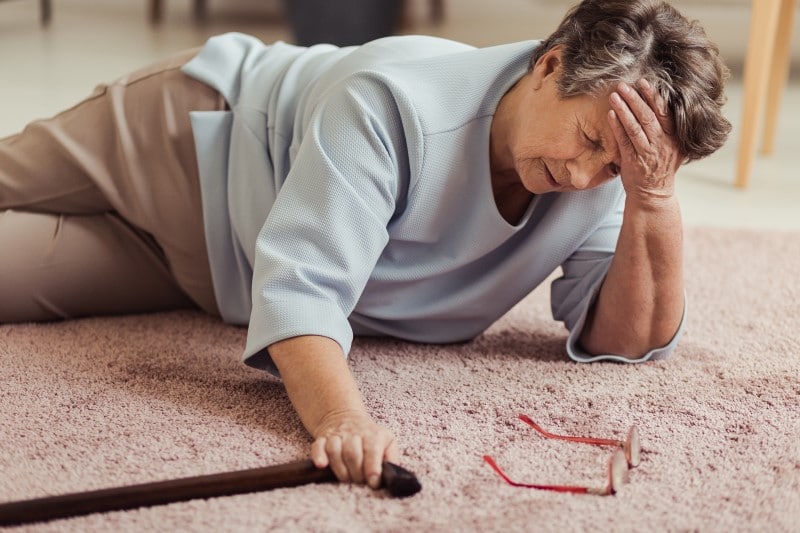Falls are great concern for seniors and their families. This is because for an older person a fall can lead to serious injury and often results in a significant loss of mobility. Elderly people who suffer these types of accidents can end up with broken bones or displaced joints that not only cause a great deal of pain but can also permanently interfere with personal independence and self- reliance. Many of these accidents are entirely preventable with a few precautions in place. To this end, it’s a good idea to consider strategies to protect ourselves or our loved ones from this significant risk. If you or someone you care about is getting older, follow these easy steps that will help with preventing falls:
- Declutter Your Space. It sounds simple, but it’s true. Look around and see where there may be a tripping hazard. Ensure that any night stands or coffee tables are easy to navigate, store bins and boxes above floor level and make sure any electrical cords are safely tucked away. This will help prevent accidents – especially when moving about at night or in the early morning when lighting may not be sufficient.
- Do a Safety Inspection. Are your carpets secured to the floor with double sided tape? Do you have grips on your stairs? Loose floor coverings and slippery stairs can easily cause a potentially serious fall. Taking a minute to look for these hidden dangers can help to ensure your continued safety.
- Update Your Bathroom. Slip and fall accidents are extremely common in bathrooms where the added element of water is involved. Take some measures now to ensure ongoing safety and prevent serious injury:
- Install railings in the shower and bath
- Use a raised toilet seat with arms to give added support
- Add floor grips to the bathtub
- Consider installing a walk-in bathtub to eliminate climbing over the side of the tub
- Use a bath seat and keep toiletries such as shampoo and soap within arm’s reach
- Stay Physically Fit. Keeping up with your daily walk, swimming in a pool or using the elliptical machine at the gym can help to maintain your mobility and strength, which can ultimately help to prevent falls.
- Speak to Your Doctor or Pharmacist. If you find that you have suddenly become unstable on your feet or are experiencing dizziness of any kind, it’s important to have that assessed right away. Certain medications can cause you to have these side effects, and so too can some medical conditions. Getting an evaluation of your health and prescriptions will help to determine your needs going forward. They may recommend:
- Assistive Devices such as a cane, walker or crutches
- Occupational Therapy to help you learn to be safely mobile inside and outside of your home
- Physical Therapy to strengthen muscles and maintain flexibility
- Get Household Help. There are many options for in home care that can help you maintain your lifestyle and minimize risk. Depending on your needs, you may wish to have assistance with:
- Cooking/Food Preparation
- Cleaning
- Bathing
- Laundry
- Nursing Care
Preventing falls in the elderly is a serious concern for seniors and their families. Taking a few simple precautions can go a long way towards enhanced safety and improved mobility.
If a senior in your family lives alone and you have concerns about their safety or their ability to care for themselves, reach out to the experts at First Choice Senior Placement for sound advice on in home care as well as residential facilities that may be suitable for you.

